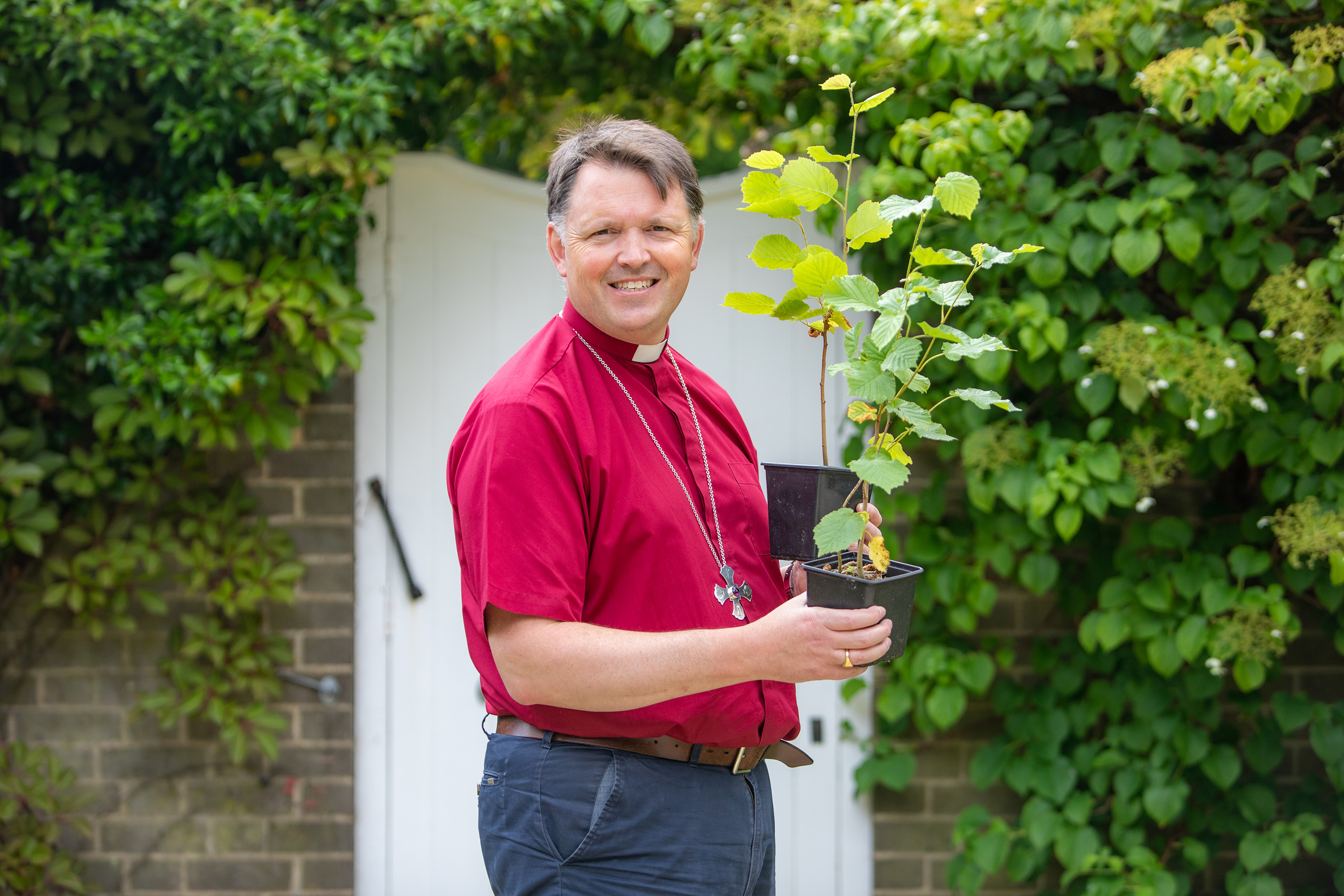The Bishop of Norwich, Graham Usher, was invited by the Archbishop of Canterbury to lead the Church of England’s Environment Programme with a charge to lead bold, deliberate, collaborative action across the Church to tackle the grave existential crises of climate change and biodiversity loss. He took up the post in June 2021. This is a brief overview of his priorities in this role and answers to some frequently asked questions.
Why did you want to be lead bishop for the environment? What motivates you?
As a child I grew up with countryside around our village and had the freedom to explore the woods, hedgerows, and ponds, collecting and recording various insect and amphibian specimens. I went on to study ecological science at university. The sense of awe and wonder of God’s creation has never left me and I value spending time in wild places. I guess these places, or just a daily walk in nature, re-balances me and draws me closer to the God in whom I live and move and have my very being.
Most diocesan bishops take on leading an aspect of the national work of the Church of England and this role seemed a good fit. The role involves championing that aspect of the mission of the Church that seeks to care for God’s creation. Many Anglicans around the world, especially in the poorest places, are already impacted by climate change, yet the cause was not of their making – climate change knows no international borders. We are also seeing a huge loss in biodiversity which is deeply worrying not only because so much of our food production relies on insect pollination, but also because we are losing the precious breadth and wonder of creation. That can’t be as God intended, not least because throughout the first creation account in Genesis there is that beautiful repeated phrase, at the end of each day of creating, that ‘God saw that it was good’.
What are your priorities for this role?
My three priorities as lead bishop are focused on buildings, land and people. I want to develop our plans to get our buildings to net zero carbon and alleviate some of the blockages that get in the way – mostly getting permission and the challenge of funding; to enhance biodiversity on all church owned land; and to see the evangelistic opportunity of working with people around environmental issues – especially our young people who are often taking the lead in this area.
Why should environmental issue particularly concern Christians?
This video gives a good explanation.
Here are some of the most common questions that have come Bishop Graham's way.
Biography
Bishop Graham is the lead bishop for the environment. He studied ecological science at the University of Edinburgh and theology at Corpus Christi College, Cambridge, before training for ministry at Westcott House, Cambridge. He has maintained an interest in biodiversity and landscapes, chairing the Forestry Commission’s Forestry and Woodlands Committee in the Northeast and being a Secretary of State appointee to the Northumberland National Park Authority when Rector of Hexham. He is a Church Commissioner, with a particular interest in enhancing the biodiversity of their housing, farming and forestry assets. He is a member of the Anglican Consultative Council and has written two books Places of Enchantment; Meeting God in Landscapes and The Way Under Our Feet; a Spirituality of Walking.
